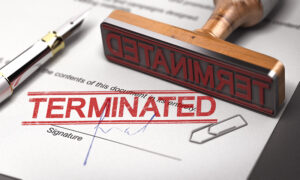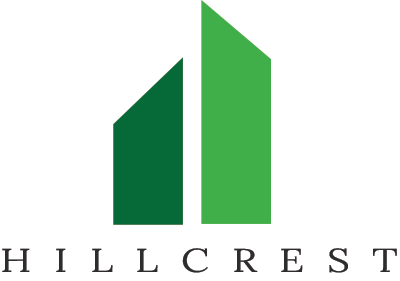HOA vendor contracts play a crucial role in maintenance and operations. These contracts define the relationship between vendors and HOAs, determining responsibilities and setting expectations. Board members can make better decisions if they understand these contracts and what goes into them.
What are HOA Vendor Contracts?
A vendor contract is a legal agreement between the HOA and a third-party service provider. These contracts outline the terms for landscaping, repairs, or maintenance. They define the work to be performed and establish rules for the vendor’s operation.
The HOA board usually manages these contracts on behalf of the community. A vendor might be a company or an individual hired for a specific task. It is essential to state all the terms in writing to avoid disputes.
The Importance of HOA Vendor Contracts
Vendor contracts help ensure both the HOA and the contractor understand their duties. With a contract in place, both parties can avoid miscommunication. Contracts also help protect the HOA if any issues arise. Without a contract, it becomes difficult to resolve payment or service problems.
Additionally, proper contracts hold vendors accountable. They allow HOAs to enforce performance and protect the interests of the residents. Plus, contracts clearly outline the starting pricing terms, thereby protecting the HOA’s finances.
What to Include in HOA Vendor Agreements
Each section of a vendor agreement serves a specific purpose. When reviewing HOA vendor contracts, board members should make sure to include the following:
1. Scope of Work
The scope of work describes what the HOA expects from the vendor. Due to the nature of this section, specificity is vital. It should outline each task, expected results, and deliverables. If a specific task or work doesn’t appear in the contract, the vendor is not legally required to do it.
 2. Duration
2. Duration
This section states the agreement’s duration, including a start and end date. The board should also note any deadlines or milestones. With a set duration, the HOA board can track performance and plan for renewals.
3. Price Sheet
Another essential item to include in HOA vendor contracts is the price sheet. The contract should clearly outline the pricing scheme. This usually comes in the form of a flat rate, an hourly fee, or a cost per service. This price sheet should list all the charges, including labor, materials, and potential extras.
4. Payment Terms
Payment terms explain when and how vendors get paid. It includes due dates, methods of payment, and penalties for late payments. This helps ensure the HOA pays the vendor on time and maintains a healthy working relationship with them.
5. Insurance
Vendors should carry their own liability and workers’ compensation insurance. The contract must also specify any other insurance requirements. This will help protect the HOA in the event of property damage or injury. Board members should always request proof of coverage.
 6. Warranties
6. Warranties
Warranties guarantee the quality of the work or product. With this in place, if issues arise, vendors must fix them at no extra cost. This section should include timeframes for coverage and what conditions apply.
7. Indemnification
Every vendor contract should have an indemnification clause. This clause protects the HOA from legal responsibility resulting from the vendor’s actions. For example, if a vendor causes harm, they must handle the legal costs. This prevents the HOA from paying out-of-pocket for the mistakes of third-party contractors.
8. Exhibits
Exhibits include supporting documents like blueprints, project plans, or service standards. These materials can help clarify expectations and the scope of work. It’s essential to reference each exhibit in the contract and attach all exhibits at the end.
9. Renewal Clause
Most HOA vendor contracts have an auto-renew clause. This means the agreement will automatically renew if the HOA fails to terminate it within a given timeframe. Some renewal clauses also include renegotiation requirements.
 10. Termination Clause
10. Termination Clause
Termination clauses cover how the HOA can terminate the agreement with the vendor and vice versa. This section should include valid reasons for ending the contract and notice periods. Board members should make sure to have a termination clause in the contract in case the vendor fails to deliver.
Can Homeowners Review HOA Vendor Contracts?
Whether homeowners can view HOA vendor contracts depends on several factors. These include state laws, the association’s governing documents, and the status of the contract. In general, homeowners don’t have access to contracts that have yet to be signed.
Executed Contracts
Once a contract is fully signed, many states allow homeowners to inspect it. Executed contracts are considered official HOA records. Homeowners can request access and even make copies in some cases. Other HOAs may only share copies once the homeowner sends a written request.
In some states, like California, executed vendor contracts must be available to homeowners unless they contain confidential information. Of course, associations may redact sensitive portions if necessary.
Contracts Under Negotiation
It is rare for an HOA to share contracts with homeowners if they are in active negotiation. This is because revealing drafts of contracts may give the association less bargaining power. Boards might also risk breaching confidentiality if they release early versions to the public.
Of course, transparency remains crucial. Board members can give updates at open meetings without revealing contracts, and homeowners can likewise ask for updates.
Can Homeowners Review HOA Vendor Contracts in Illinois?
Each state has different laws about providing homeowners with access to certain records, including HOA vendor contracts. Homeowners should check their state statutes and governing documents. These will outline which records are open to inspection and how homeowners can request them.
In Illinois, 765 ILCS 160/1-30 applies to homeowners associations. According to this section, an HOA should make copies of all contracts, leases, and other agreements the board has entered into available to homeowners.
Similarly, 765 ILCS 605/19 applies to condo associations. According to this section, the association must allow unit owners to inspect all contracts, leases, and other agreements to which the association is a party.
The Bottom Line
No association can operate without HOA vendor contracts. Beyond simply having one, a vendor contract should include all pertinent information and protections. Both board members and homeowners should know this to ensure successful operations.
Hillcrest offers HOA management services to communities in Chicago. Call us today at 630-627-3303 or contact us online to request a proposal!
RELATED ARTICLES:
- Sustainability In HOAs: Save Money And Go Green
- What Does A Condo Engineer Do?
- Successful HOA Board: Qualities, Mistakes, And Measuring Progress




